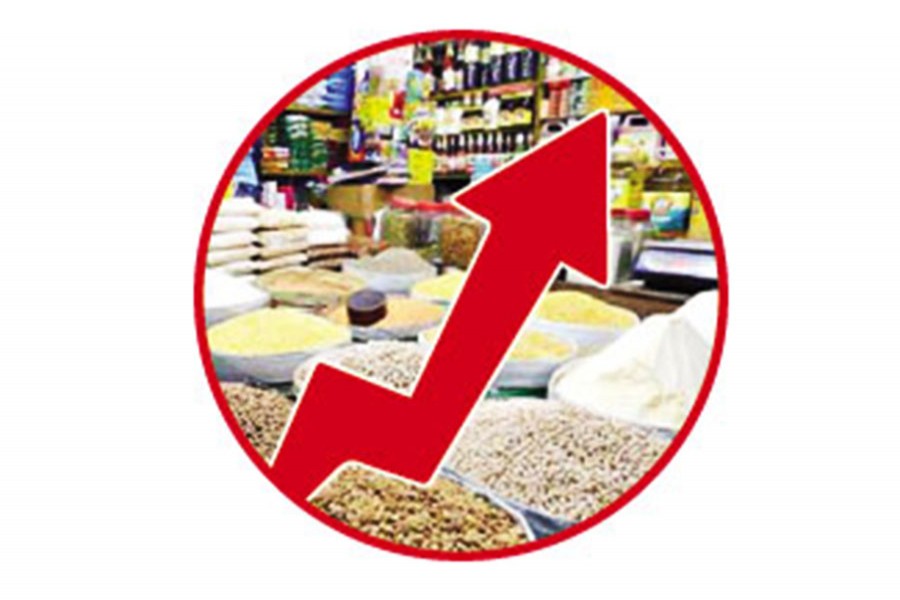The economic outlook of Bangladesh is robust. This is the considered opinion of multilateral bodies like the World Bank (WB), the International Monetary Fund (IMF) and the Asian Development Bank (ADB). According to these international financial institutions, Bangladesh will achieve its gross domestic product (GDP) growth at the rate of 6.4, 6.6 and 5.5 per cent respectively this fiscal. Their economic growth prediction for the next fiscal is 6.9, 7.1 and 6.8 per cent. Even the country's per capita income has shot up from $2,554 to $2,591 by this time.
The GDP growth or for that matter the rising per capita income at a time when the pandemic is yet to be over, certainly paints a rosy picture but it does not mean that every single person or even a family earns on an average as much as the per capita gross. Poverty alleviation programmes before the pandemic were significantly bringing down the ratio of people below the poverty line. The sudden arrival and unrelentingly prolonged stay of coronavirus has thrown most of the socio-economic programmes into turmoil.
The number one priority for more than a year was the mere survival. But the definition of survival differed for those who could avoid going outdoors and those who live from hand to mouth. For the former, the desperation was not to catch Covid-19 and for the latter group, managing the minimum quantity of foods for keeping body and soul together was the ultimate challenge. Even the poor and their next higher category with not much savings could weather the hostile period with support from individuals, voluntary groups, charitable organisations and the government. Even the law enforcement agencies or their individual members got themselves involved with such food donation programmes.
With the start of the vaccination programme and the easing of restrictions on people's movement and opening up of industries and businesses, there was a perceptible mood swing contrary to the compassion that moved people to come in aid of fellow human beings in distress. It did not take long to dry up the groundswell of fellow feeling and kindness. Although it is far from business as usual, the usury-driven mindset of business is going for outrageous profit as if to make up for the business slump during the pandemic's critical period.
Its upshot has been vicious and the poor and fixed-income group of the lower middle class are gasping for breath under unrelenting market volatility. Many of the workers and employees who lost employment are yet get employed and there are others who have been forced to accept reduced wages or pay packages. This is exactly why at this time, price hike of almost every essential for bare human survival deals a deadly blow. The trend is so the world over.
What is particularly galling is that manufacturing businesses were the prime beneficiaries of the stimulus packages the government generously offered but now they refuse to share the benefits or profits with their workers, many of whom have been retrenched or hired at lower wages than they earned during the pre-pandemic time. Even their overtime duty is no longer as paying as before.
In developed countries, social welfare benefits the unemployed enjoy are enough for leading a modest life. In this country, there are no such programmes except the vulnerable group feeding programme which mostly covers, as its title suggests, the aged and the infirm with no one to take care of. Even there are allegations that not all the deserving candidates receive the benefit and at times undeserving well-to-do people are listed for the benefit.
Thus the pandemic-induced vulnerability of the working class, lower-middle class people employed or now unemployed or even those who were running micro and small enterprises remains outside of the pale of social benefits or as called in economic parlance stimulus packages. Because the micro, small, medium enterprises (MSMEs) cannot run full throttle or some of those have gone out of operation, there are supply shortages of commodities or spares from the backward linkage sectors. This again explains the upward price escalation. Such a development is in addition to the market manipulation by traders.
The Bangladesh Institute of Development Studies (BIDS), South Asian Network on Economic Modeling (SANEM) and Power and Participation Research Centre (PPRC) claimed that poverty has doubled from 21 per cent to 42 per cent at the end of the second wave of the pandemic. The Bangladesh Bureau of Statistics did not agree but it conceded that people's purchasing capacity eroded by 20 per cent. For the poor, unemployed and adversely employed, the extent of erosion of purchasing power is likely to be unfathomable.
It is here the government really has an intervening role to play. But how? Energy, gas, water and fertilisers are already costly and attempts are there to raise prices of all the utility goods. The agriculture minister has disclosed that the government has to give huge subsidies on account of fertilisers. He is in a dilemma over maintaining the subsidy with rising prices of these agriculture inputs. In fact, an increase in fuel prices triggered a chain reaction in economy all across the board. True, fuel oil has become costlier in the international market but the domestic raise could be delayed because the Bangladesh Petroleum Corporation (BPC) made huge profit between 2014-15 and 2020-21.
Apart from corruption in the name of system loss and inefficiency, there are policy flaws such as paying the idle captive power plants and allowing them to get the benefit of subsidised fuel when power generation is more than the country's requirement. These are areas that need to be plugged in order to stop drainage of the public exchequer. Then further subsidies on fuel used by the general public --- maybe, by introducing a rationing system --- can be considered in order to tame the soaring inflation.


